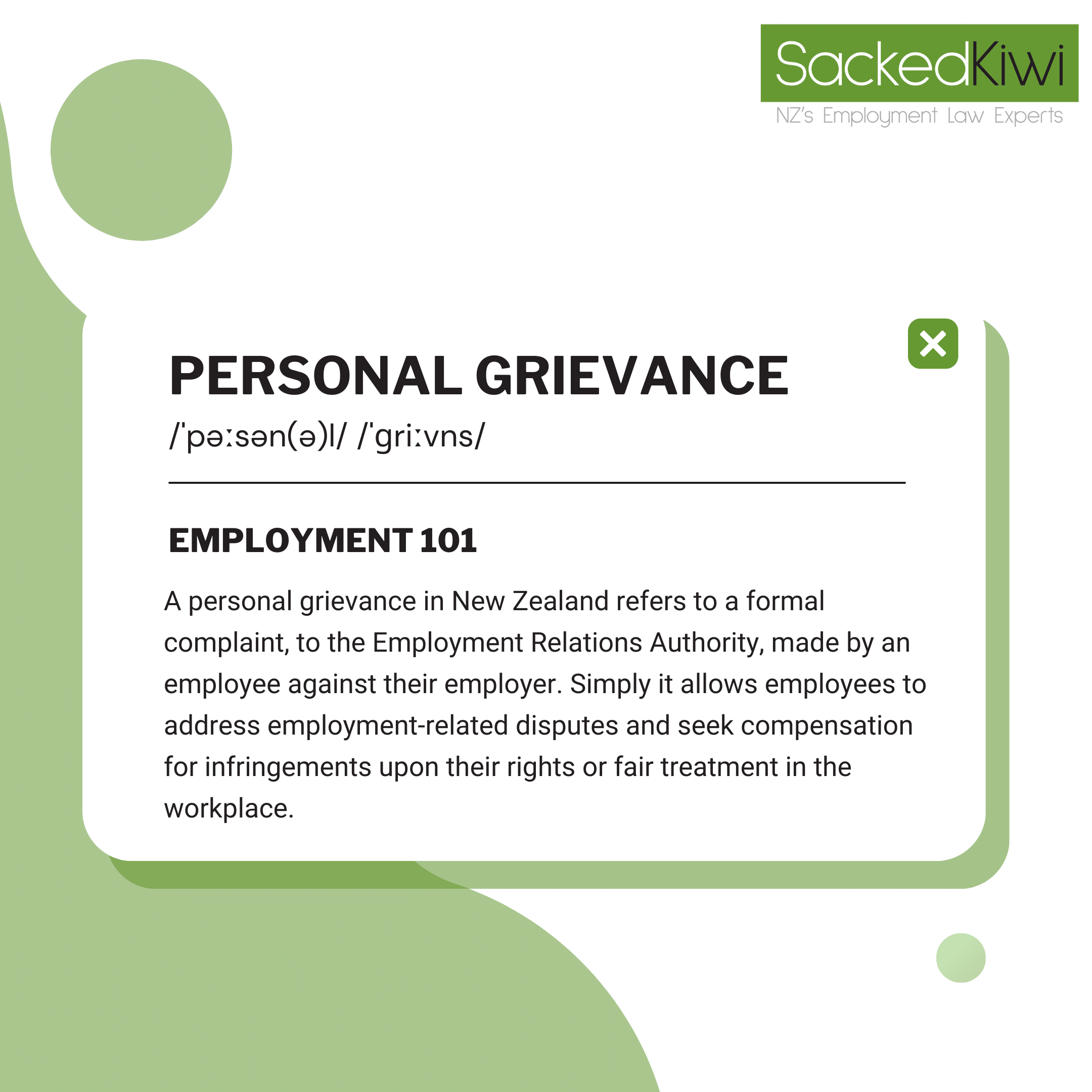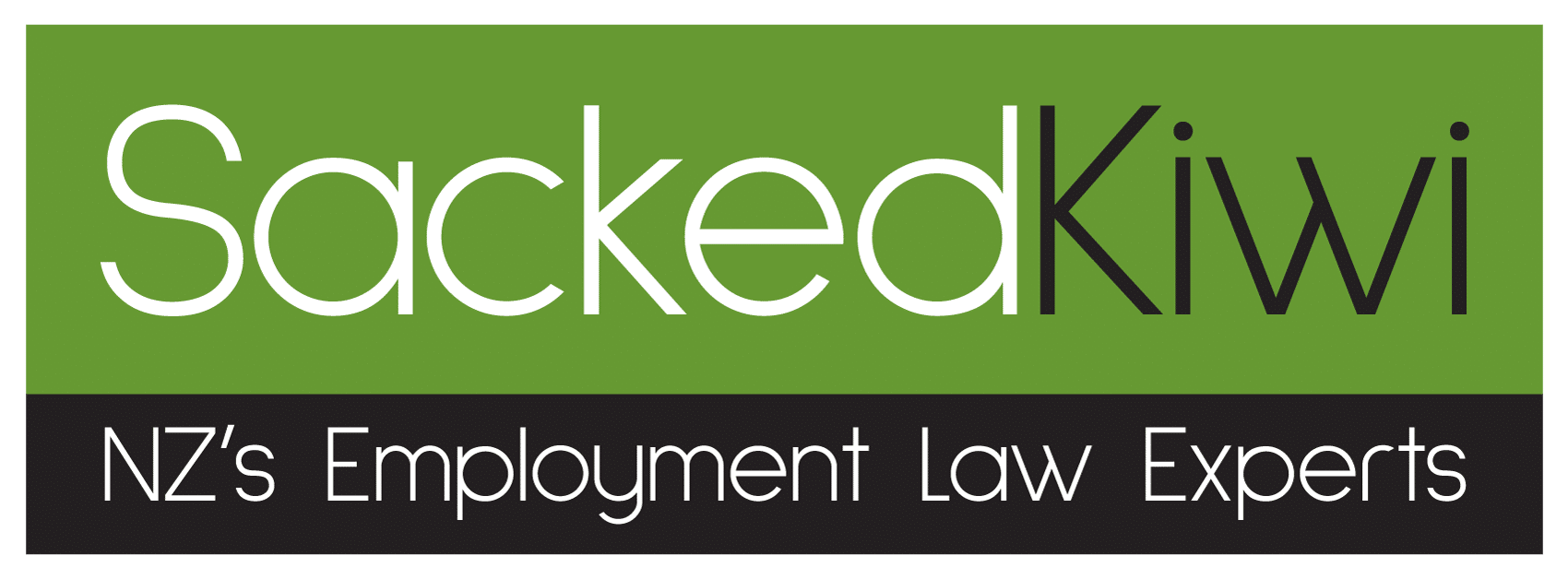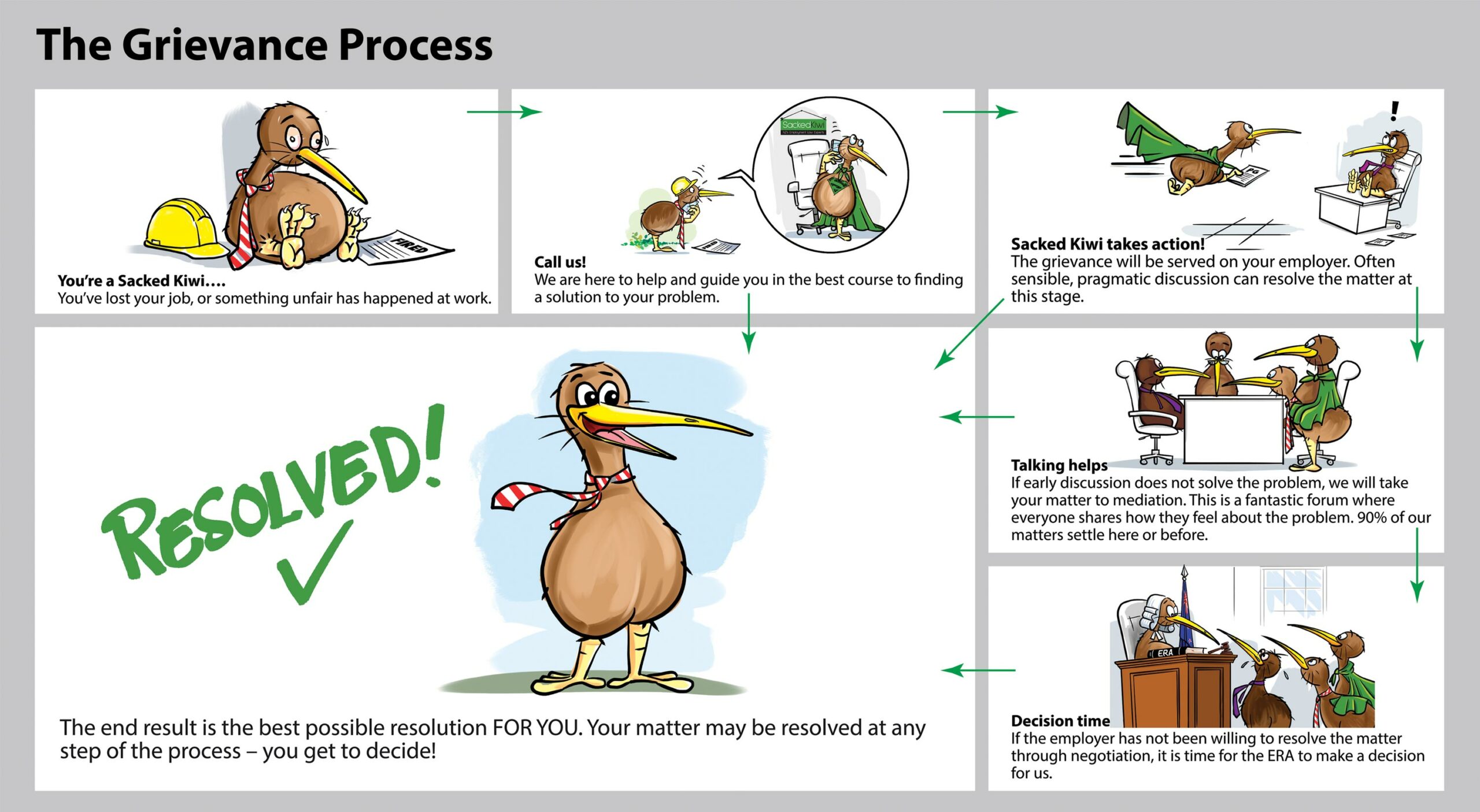
What is a Personal Grievance in New Zealand?
A personal grievance in New Zealand refers to a formal complaint, to the Employment Relations Authority, made by an employee against their employer. Simply it allows employees to address employment-related disputes and seek compensation for infringements upon their rights or fair treatment in the workplace.
The right to file a personal grievance is a statutory right conferred onto employees under s 102 of the Employment Relations Act. Employee rights form the bedrock of fair treatment and respect in New Zealand workplaces. A personal grievance arises when these rights are violated, leading to disputes between an employee and their employer. A personal grievance is simply a tool that can be used by employers when they think their rights are not being respected. The Employment Relations Authority, and subsequently the Employment Court, issue determinations on individual personal grievances after an investigation meeting.
What are grounds for a personal grievance in New Zealand?
A personal grievance claim can be brough by employees or former employees in New Zealand for the following reasons:
- Unjustified Dismissal
- Unjustified Disadvantage
- Discrimination
- Harassment and Bullying
- Sexual Harassment
- Breach of Employment Agreement
- Health and Safety Concerns
- Threats around Union Membership & Activities
The following is a brief overview of what different grounds are.
1. Unjustified Dismissal
Unfair termination from employment without proper cause or following due process. Employees have the right to be dismissed for justifiable reasons and in accordance with employment laws. A hypothetical example could be an employee fired abruptly without warning or any valid reason stated by the employer.
2. Unjustified Disadvantage
Unjustified disadvantage is when an employee suffers a disadvantage in their employment because of an employer’s actions. This disadvantage must be unjustified to a reasonable person and does not have to be material or financial loss.
3. Discrimination
Discrimination is when an employer dismisses or subjects an employee to unfair treatment due to characteristic like gender, race, age, disability, religion, or sexual orientation. For example, an employee consistently passed over for promotion because of their gender or race despite being qualified.
4. Harassment and Bullying
Harassment and workplace bullying is persistent behaviour that causes distress, humiliation, or intimidation to an employee. This often looks like a hostile or offensive work environment. More specifically it includes verbal abuse, threats, or ridicule. For example, a manager repeatedly making derogatory remarks about an employee’s appearance.
5. Sexual Harassment
Sexual Harassment is where any unwelcome or offensive language behaviour of a sexual nature, that disadvantages an employee at work. This ranges from a decrease in satisfaction at work to simply just having impacting ones ability to work.
6. Breach of Employment Agreement
Violation of terms and conditions outlined in the employment contract. This could involve changes to job roles, working hours, or salary without mutual agreement or proper notice. An example might be an employer altering an employee’s responsibilities significantly without discussion or consent.
7. Health and Safety Concerns
Unsafe working conditions endangering an employee’s health or safety. This could involve failure to provide necessary safety equipment, exposure to hazardous substances without precautions, or inadequate training for handling dangerous equipment. An example could be an employer ignoring repeated requests to fix faulty machinery that poses a risk to employees’ safety.
8. Union Membership & Activities
If an employee feels they have been treated unfairly or discriminated against because of their union membership or involvement they have valid grounds to file a personal grievance. This means that if an employer takes negative action against an employee, such as demoting them, cutting their hours, or creating a hostile work environment, simply because they are part of a union or participating in union activities, the employee has the right to file a complaint
Commonly Asked Questions
Can stress as grounds for a personal grievance in New Zealand?
To file a personal grievance for stress there needs to be a clear connection between that stress and workplace conditions or employer actions. While stress itself isn’t uncommon in professional environments, attributing it directly to the workplace can be difficult. Proving this link often demands substantial evidence. Such evidence might encompass documentation of excessive workload, inadequate support mechanisms, or instances of mistreatment or discrimination by the employer.
Successfully establishing stress as a valid ground for a personal grievance typically requires professional evaluation. This involves seeking expert opinions, such as medical assessments or legal advice, to support the claim. Professional evaluations can provide a comprehensive understanding of the impact of workplace factors on an individual’s mental and emotional well-being. Gathering robust evidence and seeking expert evaluations strengthens the case, increasing the likelihood of a successful resolution when addressing stress as a grounds for a personal grievance in New Zealand’s employment law framework.
Can unfair treatment at work be grounds for a personal grievance in New Zealand?
In New Zealand, unfair treatment at work can indeed serve as legitimate grounds for a personal grievance. Unfair treatment encompasses various scenarios, such as favouritism, unjust disciplinary actions, discriminatory practices, unfair evaluations, or denial of opportunities for growth and development.
Proving unfair treatment often necessitates substantial documentation or evidence. This may involve keeping records of discriminatory actions, biased treatment, or instances where the employee was unfairly penalized compared to colleagues. Seeking advice from legal professionals or employment law experts can offer guidance on what constitutes unfair treatment and the necessary steps to substantiate the claim effectively. Successfully demonstrating and documenting instances of unfair treatment can empower employees to pursue a personal grievance and seek redressal through proper channels in New Zealand’s employment law.
How do you lodge a personal grievance in New Zealand?
Lodging a personal grievance in New Zealand involves following a structured process to ensure proper documentation and adherence to legal procedures. Our team of experts at Sacked Kiwi can help you through this process.
What is the personal grievance process?
The personal grievance process is rather straightforward and easy to follow once you’re in contact with our team. We are here to assist and guide you towards a solution for your problems. Our role involves helping you complete and lodge a personal grievance with the Employment Relations Authority (ERA), representing you during mediation, and supporting you in the Employment Court.
Legal Disclaimer: The content posted on the Sacked Kiwis website should not be considered or relied upon as legal advice or opinion. The information presented here is not intended to serve as legal guidance. Over time, laws and regulations evolve, potentially altering the accuracy of previously shared information. Updates in jurisprudence or legislation, which could happen without immediate notice, may render the legal information on this platform outdated or obsolete.
Seeking legal advice when sumbiting a personal grievance is advisable to ascertain rights, obligations, and potential avenues for resolution. Get in touch with our Team of Legal Experts. Contact them here!
Should you need employment advice, please don’t hesitate to contact us through our toll-free hotline.


